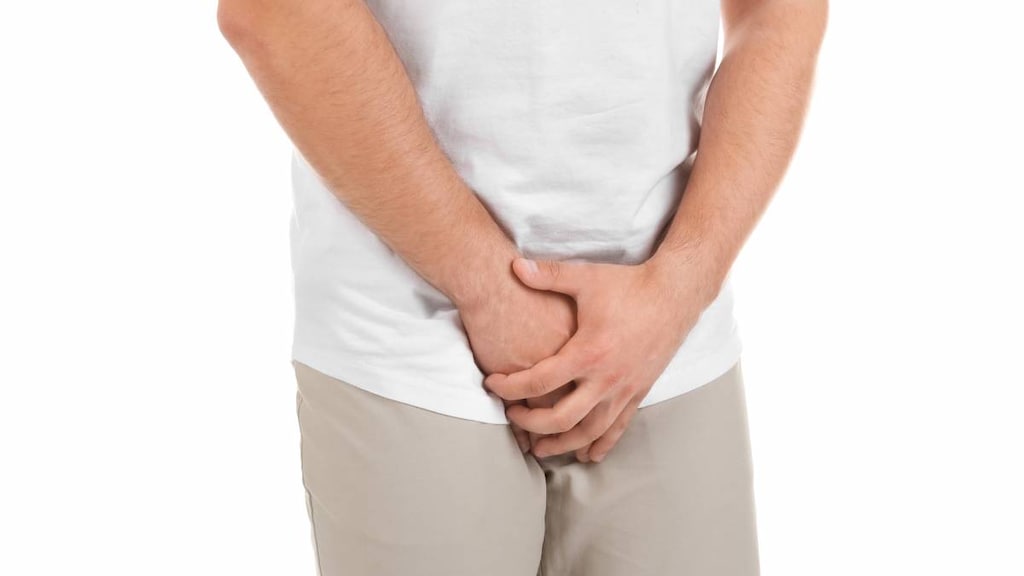
What is prostatitis?
Prostatitis is a swelling and inflammation of the prostate gland. The prostate gland is a small walnut-shaped gland that sits just below the bladder and surrounds the urethra in men. It secretes prostate fluid, one of the main components of semen.
Prostatitis can develop in men of all ages, but more commonly affects men between the ages of 30 and 50.
There are 2 main types:
- chronic prostatitis: most common, not usually infection-related, symptoms come and go over several months
- acute prostatitis: rare, symptoms come on suddenly and require immediate treatment, usually caused by an infection
What are the symptoms of prostatitis?
Symptoms differ depending on whether the prostatitis is acute or chronic.
Symptoms of acute prostatitis may include:
- Pain around the penis, testicles, anus, lower abdomen or lower back. May be severe
- Pain when defecating (passing poo)
- Pain when urinating (peeing), frequent urination (especially at night, urgent urination, problems starting or "stop-start" peeing, or blood in the urine
- Complete inability to urinate (this is a medical emergency)
- Feeling unwell, with aches, pains and possibly a fever
- A thick discharge from the penis
Symptoms of chronic prostatitis generally last for at least 3 months and may include:
- Pain around the penis, testicles, anus, lower abdomen or lower back. May be severe
- Pain when urinating (peeing), frequent urination (especially at night, urgent urination, problems starting or "stop-start" peeing, or blood in the urine
- An enlarged or tender prostate on rectal examination, although in some cases it may be normal
- Erectile dysfunction, pain when ejaculating or pelvic pain after sex
How is prostatitis treated?
See your doctor straight away if develop sudden and severe symptoms of prostatitis. Acute prostatitis is usually treated with painkillers and a two to four-week course of antibiotics. Hospital treatment may be necessary if you are unable to pass urine.
If you have symptoms of chronic prostatitis, you may be referred to a urologist who specializes in genitourinary problems and management.
Treatment may include:
- Painkillers
- Alpha-blockers – these help relax the muscles in the prostate gland and at the base of the bladder
- Antibiotics




